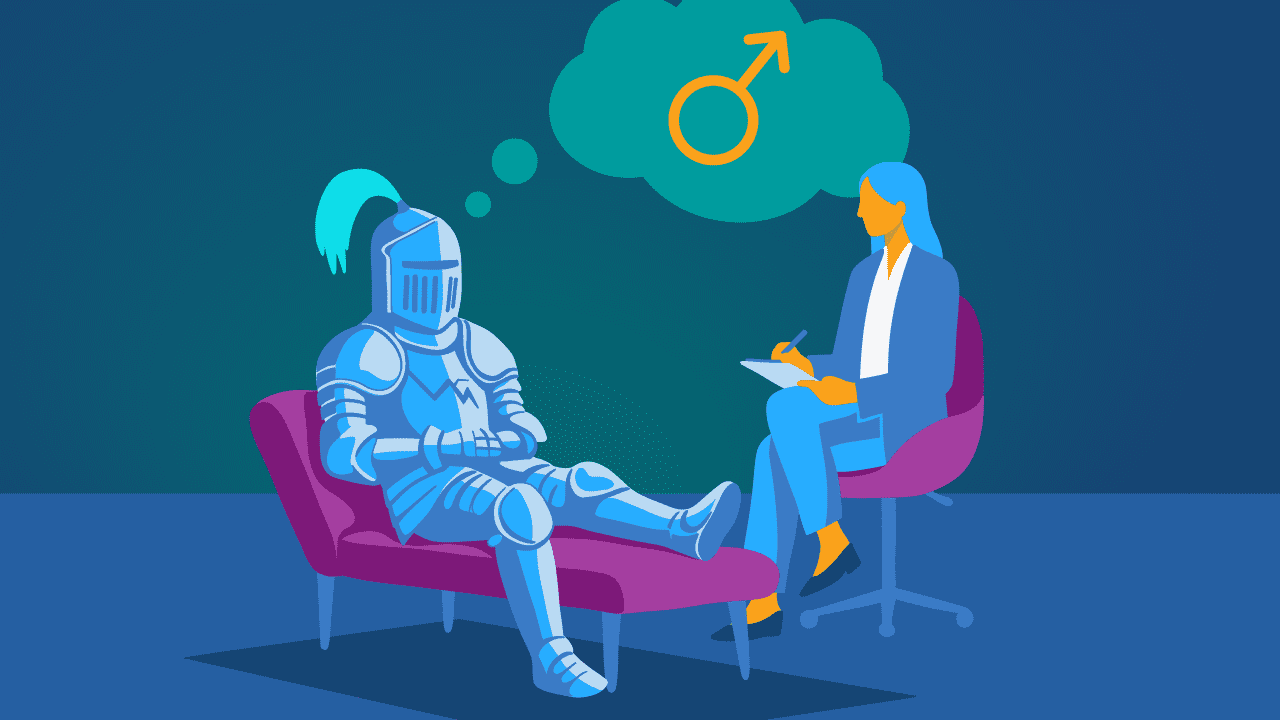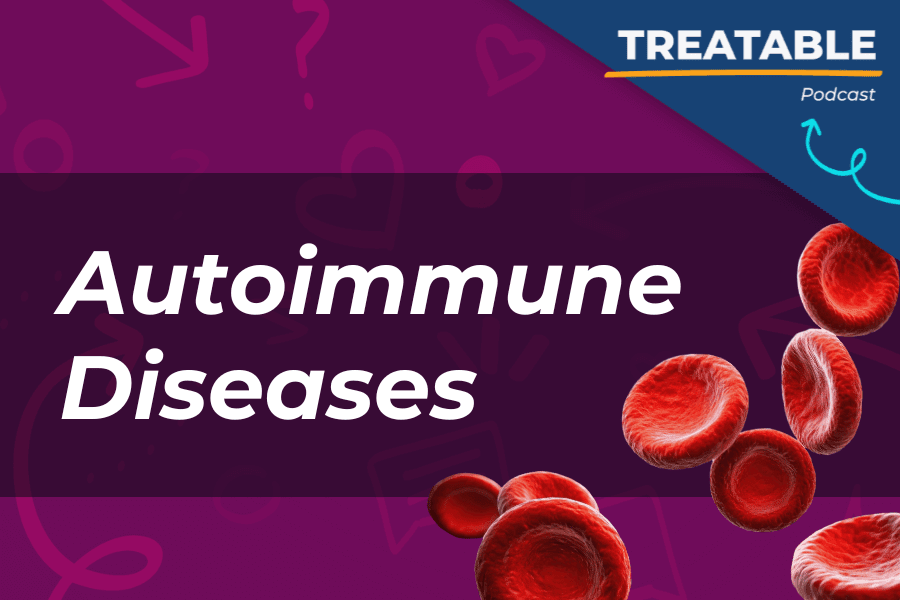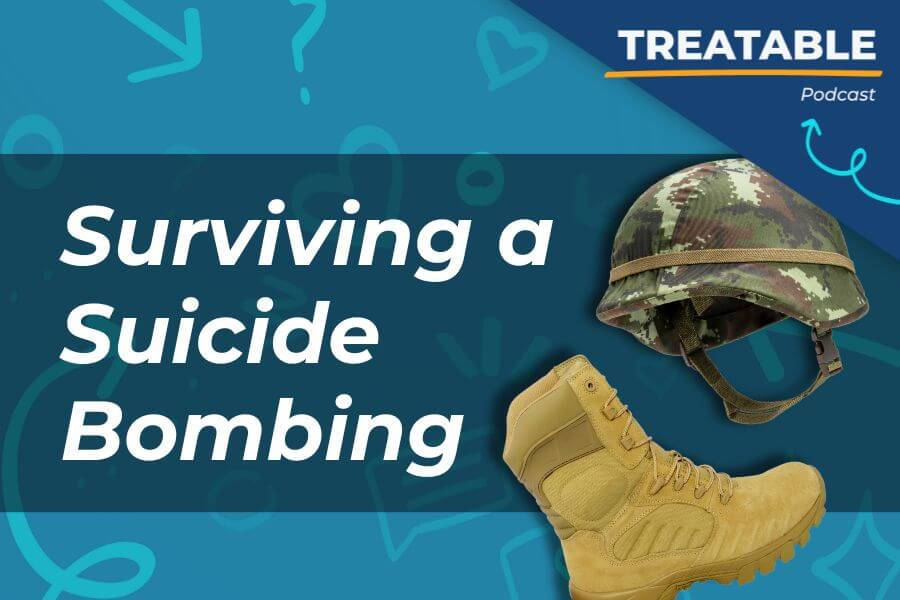In today’s episode of Treatable, host Clint dives into the rarely discussed yet critically essential topic of men’s mental health and therapy.
Our guest, Marc Azoulay, a licensed clinician and founder of Men’s Therapy Online, shares his insights on why traditional, old-school approaches to masculinity often fall short, and how modern men can benefit from embracing vulnerability through therapy.
Introduction: Breaking the Silence on Men’s Mental Health
“You’re a problem solver, a do-it-yourself kind of guy. ‘Be a man’ is your mantra. And locking in is your go-to solution for getting through tough times. So why go to therapy?”
This episode begins with an exploration of common misconceptions about men’s mental health.
Therapy often appears unnecessary or ineffective for men who are conditioned to believe in self-reliance and resilience as their only tools for overcoming life’s challenges.
Guest Spotlight: Marc Azoulay
Enter Marc Azoulay, a man on a mission to change the narrative. Marc is an LPC (Licensed Professional Counselor), LAC (Licensed Addiction Counselor), CGP (Certified Group Psychotherapist), and ACS (Approved Clinical Supervisor).
He is the founder of Men’s Therapy Online, a healing hub for men looking to regain their footing and elevate their lives with professional help.
Marc’s Background
- Psychoanalysis
His expertise helps to understand the deep-rooted issues and emotions men face.
- Neuroscience
Providing a scientific basis for why men behave and feel the way they do.
- Buddhism
Offering a holistic approach that encourages mindfulness and mental well-being.
Marc’s Mission
- Uncover Barriers
Help men dismantle unconscious barriers holding them back. - Empowerment
Support men in becoming the best versions of themselves. - Community Engagement
Encourage men to show up fully for their lives, relationships, and communities.
Why Focus on Men’s Therapy?
Marc’s entry into the field of men’s mental health was driven by personal experience and observation.
Key Issues in Men’s Mental Health
- Higher Suicide Rates
Men are committing suicide at three times the rate of women. - Domestic Violence
Untreated emotional issues often lead to violent outbursts. - Isolation
Men often isolate themselves, leading to other health issues such as obesity and depression. - Lack of Emotional Expression
Without addressing their emotions, men turn to maladaptive coping strategies such as drinking or dissociating.
Marc elaborates on these points, emphasizing the dire need for targeted men’s therapy to help men navigate these challenges effectively.
Unique Challenges for Modern Men
Marc highlights how the issues men face today are markedly different from those in previous generations.
Generational Shifts
- Old School
Older generations showed more outward aggression. - Modern Men
Modern men exhibit emotional shutdown, isolation, and fear of expressing power. - Social Justice Impacts
Men from millennial and Gen Z generations often avoid traditional masculine roles due to negative societal perceptions.
Therapy as a Solution
Therapy, according to Marc, offers modern men tools they critically need but might not know how to access.
Therapeutic Approaches
- Holding Space
Allowing men a safe space to express emotions without judgment. - Confrontation Over Comfort
Clinicians should respect men’s need for direct, confrontational dialogue to penetrate emotional barriers. - Parallel Thinking vs. Linear Thinking
Encouraging men to adopt more holistic emotional approaches traditionally seen in women can balance their mental well-being.
Clint and Marc discuss practical examples, such as Clint’s realization during therapy that he was responsible for his actions, a breakthrough that came through confrontational therapy.
Addressing Societal Constructs
Clint and Marc delve into the roles of societal constructs like patriarchy and privilege.
- Impact on Society
Disenfranchisement of women and the ongoing legacy of segregation have profound implications. - Responsibility of Privilege
Men should recognize their privilege and use it for positive change.
Practical examples include advocating for equitable treatment within families and communities.
Masculinity in the Modern Age
Marc and Clint discuss the changing definitions of masculinity in today’s world.
- Balancing Masculine and Feminine
The modern man should embrace both traditionally masculine and feminine qualities. - Gender Roles
Marc stresses that gender is a social construct. Men and women can exhibit qualities of both masculinity and femininity, which can provide a balanced perspective in personal and professional life.
Comparative Frameworks
- Traditional vs. Modern Approaches
Traditional masculinity often emphasizes stoicism and self-reliance.
Modern approaches value emotional vulnerability and community support. - Impact on Relationships
Relationships improve when men embrace emotional complexity, which fosters a deeper connection with partners, friends, and family.
Marc’s Therapeutic Techniques
Marc’s unique approach to therapy for men is built on respect and confrontation.
Key Techniques
- Respect
Men need respect in therapy, which can be achieved through direct and honest dialogue. - Mirror Technique
Holding up a mirror to men to reflect their true selves fosters breakthroughs. - Therapeutic Spaces
Marc’s practice offers not just individual counseling but also men’s groups, retreats, and an online community that enforces accountability. - Confronting Privilege
Utilizing privilege responsibly by supporting less privileged communities. - Ethical Code
Men should develop and adhere to a strong ethical code.
Marc and Clint then discuss practical methods for men to engage in therapy and emotional growth.
Practical Exercises
- Daily Emotional Check-Ins
Spend a few minutes every day acknowledging and expressing feelings. - Community Engagement
Join therapy groups or online communities to share experiences and get support. - Fluid Gender Roles
Practice embracing both traditionally masculine and feminine qualities in daily life. - Ritualistic Spaces
Use rituals or designated times to explore and express emotions safely.
Conclusion: Turning Awareness into Action
If you recognize the need for therapy in your life or the life of another man, visiting MensTherapy.Online can be an important first step toward transformative change.
The comprehensive, community-focused approach can make all the difference.
Men’s mental health challenges are very real, but with the right help, they are also treatable.
It’s time to embrace vulnerability, take responsibility, and show up fully for our lives and relationships.
Takeaway items
- Men need respect in therapy rather than just safety.
- Therapy designed specifically for men can have profound positive impacts.
- Addressing societal constructs and embracing both feminine and masculine qualities are essential for mental health.
- Practical, community-focused approaches can help men feel seen, supported, and responsible for their emotional well-being.
Links and Additional Resources
For more information about Marc Azoulay and the therapeutic programs available, visit MensTherapy.Online.
Next Steps
- Join a men’s group or retreat.
- Start daily emotional check-ins.
- Engage in meaningful and confrontational therapy sessions.
Stay tuned for more insightful conversations on Treatable – where we unpack mental health topics with experts who show us that change is possible.
Outro
This episode of Treatable was edited by Daniel Lopez. Written contributions came from Alexandra Kruger, with theme music by Sebastian Gonzalez and cover art by Joel Daniel.
If you found value in this episode, consider leaving a five-star review to help spread mental health awareness. Clint reads every comment, and your feedback could be featured in the next episode.
Stay tuned for more insightful discussions on Treatable — where we unpack mental health topics with experts who show us that change is possible.



